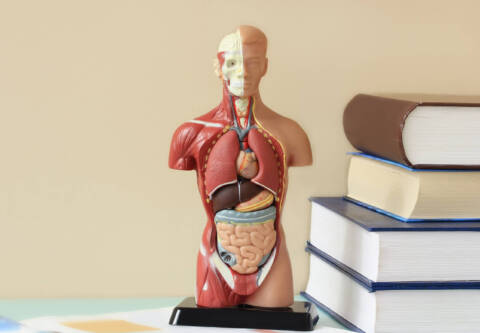How to Manage Your Time When It Comes to Work and School
If you’re a student with many obligations, like working a full-time job or raising children (or both), schoolwork may feel like a dauting and overwhelming task. Luckily, balancing your different responsibilities doesn’t have to be impossible. With a little effort and strategy, you can learn to manage your time more effectively, allowing you to pursue a college degree without sacrificing work or quality time with family and friends. Like many people, you likely own a smartphone, which means you may be taking a lot of time out of your day to check social media, text friends and answer personal phone calls. While interacting with the world is generally a good thing, spending hours scrolling your Facebook and Instagram feeds can take valuable time away from you without providing real fulfillment or helping you meet your goals. If staying off your phone while you’re at work or studying is a challenge, try setting your phone to airplane mode. This will keep your phone offline and prevent you from sending and receiving calls and texts. Even the most hectic and busy day can become easier if you plan it ahead. Your to-do list can be as detailed and fixed or as fluid as you need it to be. The idea here is to be organized and in control of your time, not the other way around. For example, if you plan to study on a day you have to work, you can schedule some time for this either before or after work. However, if you decide at the last minute you’d rather do schoolwork on another day, have some alternatives in place like doing a load of laundry or shopping for groceries. This way you’ll avoid leaving everything for the last minute (which can be overwhelming and affect your productivity). You may have heard successful people are those who can multitask. However, reality shows this couldn’t be further from the truth. Paradoxically, when you try to “do it all,” you end up getting nothing done. As a busy student, you may feel compelled to do a few things at the same time, thinking it’s the smart and efficient thing to do. This is understandable, but keep in mind that trying to “do it all” may result in getting nothing done. shows our brains simply aren’t wired to effectively handle more than one task at a time. So next time you study for a test, read your textbook or work on an assignment, make sure you’re not trying to do something else simultaneously like cook dinner, scroll social media or chat with a friend. Although your significant other and children won’t be able to study for you, there are several other things they can help you with if you feel you’re running out of time. It may be tempting to prove to yourself you can do it all—work, run a home and go to school—but this is often untrue and unnecessary. There’s nothing wrong with asking others for help to free up some time for schoolwork or a well-deserved break. Even the strongest and most organized people will become tired and stressed if they neglect to take time off from their everyday responsibilities. Prioritizing relaxation and self-care when you’re super busy isn’t a luxury—it’s actually necessary if you want to avoid burnout and exhaustion. Taking time off doesn’t have to involve days or weeks of vacation. It can be as little as taking 30 minutes out of your day to go for a walk or meditate. You can also set aside one day in a week that’s completely free from work and study. You can spend this day as you wish and indulge in the things you love, such as spending time with family, taking a road trip or simply binge watching your favorite show. When you enroll at the St. Louis College of Health Careers in Missouri, you automatically gain access to which include several academic resources that can help you balance your studies, work and personal life. Our dedicated academic advisors are here to offer personalized mentorship and academic tools tailored to your unique situation. To explore our diverse healthcare programs, or call 866-529-2070.

